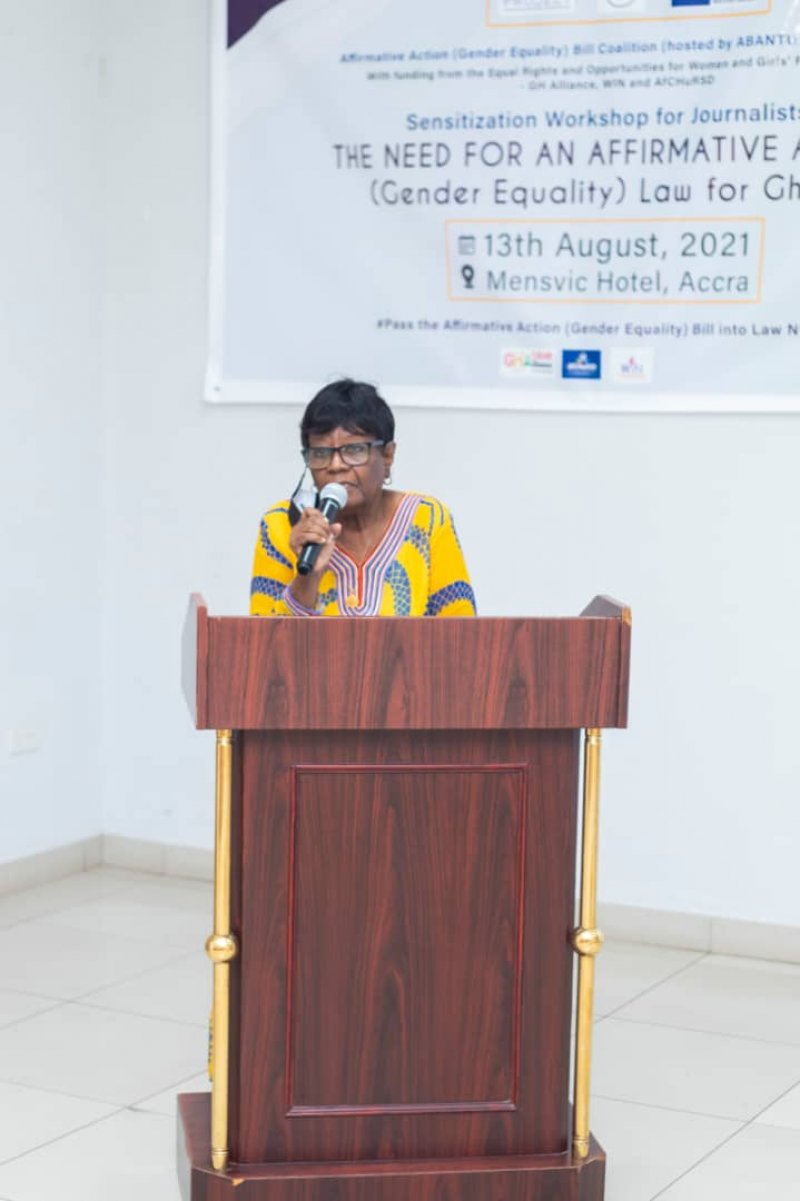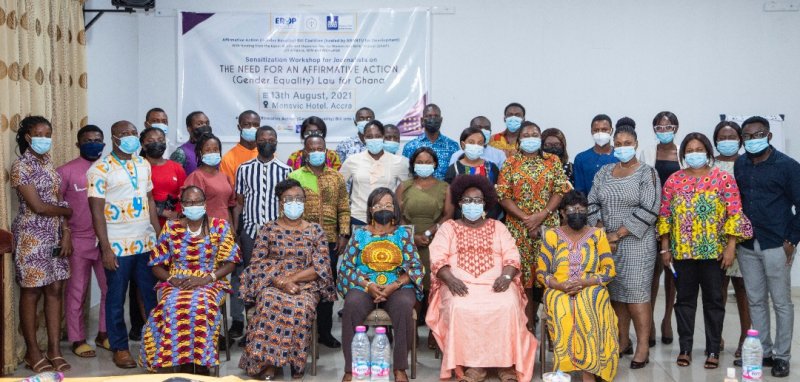The Affirmative Action Bill Coalition has urged the media to set the agenda on the importance of the Bill to sensitise the public and sustain stakeholders’ interest in advancing its passage into law for women and men to gain equal opportunities in public life.
The Affirmative Action Bill (AA Bill) seeks to encourage efforts towards addressing socio-cultural, political, economic and educational gender imbalances in private and public sectors in accordance with Clause 4 of Article 17 of the 1992 Constitution.
Its objective is to promote a progressive increase and active participation of women in public life from a minimum of 30 per cent to a parity of 50 per cent by 2030 in line with the requirements of the Sustainable development Goals (SDGs).
Dr Charity Binka, a Steering Committee Member of the AA Bill Coalition, a group committed to advancing advocacy for the passage of the Bill, said the media had a critical role in sustaining the interest of stakeholders including members of Parliament, policy-makers, gender experts, traditional rulers, opinion leaders, and identifiable groups as there was enough justification for Ghana to have an Affirmative Action Law.
“News coverage of the debate on the AA Bill, special documentaries and feature articles on gender equality issues, and media programmes on special days such as the International Women’s Day and other gender-related activities will enhance the exposure on the Bill to fast- track its passage,” she said.
Dr Binka, also the Executive Director of Women, Media and Change, a Non-Governmental Organisation committed to building the capacity of journalists to promote gender equality, said this at a sensitisation workshop in Accra for the media.
The workshop, organised by the AA Bill Coalition, was to drum home the need for an Affirmative Action (Gender Equality) law for Ghana and to solicit the assistance of the media, which are critical vehicles to advancing the advocacy for the passage of the Bill.
It was with support from the Netherlands Embassy, through the Equal Rights and Opportunities for Women Project (EROP), being implemented by the SRHR Alliance for Young People, African Centre for Human Rights and Sustainable Development, and Women in Need.
Dr Binka said the power of diversity that the media had to promote the AA Bill could not be over-stated, especially with their role as the Fourth Estate of the Realm to change behaviours by educating the public to make informed decisions.
She said the media must ensure government upheld its responsibilities to guarantee equal representation of women and men in leadership positions, ensure equal pay, sustainable development, and mainstream gender in all spheres to achieve gender equality and equity.
Madam Sheila Minkah-Premo, the Convener of the AA Bill Coalition, said there was enough justification for Parliament to pass the Bill as recommended by the Constitution Review Commission in its White Paper and the number of commitments governments had made over the years in compliance with international obligations.
She said the need for gender equality started when Ghana attained a Republican status in 1960 with the passage of an Affirmative Action Act – Peoples’ Representation Act, which recognised that women’s political participation was a critical component of democratic dialogue and social cohesion.
Madam Minka-Premo said Ghana was far behind in achieving gender equality with regard to governance and leadership in other public and private spheres, and called on journalists to help make gender inequality an urgent issue that must be addressed by the Government.
Data from Afri-Dev.Info indicate that Rwanda had the highest of 61.3 per cent of women representation in Parliament, Senegal 43 per cent, and Ghana 14. 6 per cent, she said, adding that Ghana could take a cue from those leading countries to enhance development.
Mrs Hamida Harrison, a Steering Committee Member of the AA Bill Coalition, said elections were not going to be the panacea for rectifying the low representation of women in the national development process.

The outcome of Ghana’s 2020 elections showed that only 40 women managed to get into the 275-member Parliament, a situation which demonstrated the persistence of gender inequality in Ghana, she said, and pledged the Coalition’s support to journalists in their endeavour to advance the advocacy for the early passage of the AA Bill.






